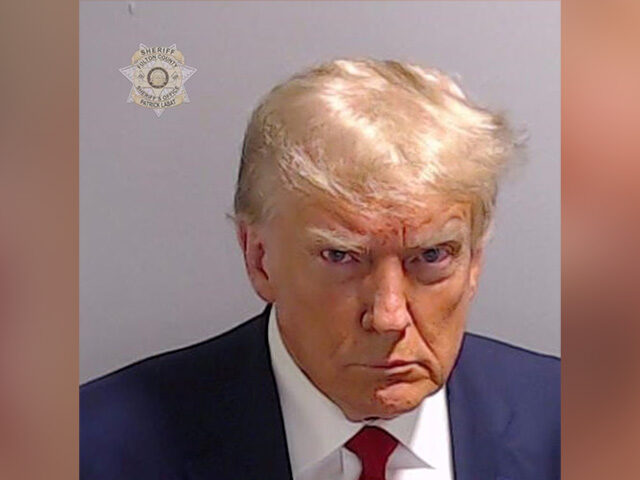|
Getting your Trinity Audio player ready...
|
Donald Trump’s Potential Strategy to Get Rid of His NY Empire & Address $355M Civil Fraud Ruling
Edited by: TJVNews.com
In a recent development that has captured widespread attention, former President Donald Trump faces a daunting $355 million civil fraud ruling, stemming from his involvement in the Trump University controversy. As the legal battle unfolds, speculation abounds regarding Trump’s potential strategies for addressing this significant financial liability. One proposed avenue involves the possibility of divesting his New York real estate empire to satisfy the judgment, as was recently reported in the New York Post.
According to legal experts cited in the Post report, divesting Trump’s extensive real estate holdings in New York City could offer a means of generating the necessary funds to satisfy the massive civil fraud judgment against him. Trump’s portfolio includes iconic properties such as Trump Tower, Trump Plaza, and Trump International Hotel, among others, which collectively represent a substantial portion of his wealth and assets.
While divestment may appear to be a straightforward solution on the surface, several challenges and considerations complicate the matter. According to the information provided in the Post report, one major hurdle involves the intricacies of valuing Trump’s real estate holdings, which have fluctuated in tandem with market conditions and prevailing economic trends. Additionally, the process of divestment entails navigating complex legal and logistical hurdles, including negotiations with potential buyers and compliance with regulatory requirements.
The prospect of divesting Trump’s New York real estate empire carries profound implications for both his legacy and business interests. For Trump, whose brand has long been synonymous with luxury real estate and opulent properties, relinquishing control of his New York assets represents a significant departure from his established image as a real estate magnate, the Post report said. Moreover, divestment could signal a strategic shift in Trump’s business priorities and investment strategies, as he seeks to navigate the aftermath of the civil fraud ruling and safeguard his financial interests.
Beyond the realm of business and finance, the potential divestment of Trump’s New York properties holds political and legal ramifications. Given Trump’s longstanding ties to New York City and the symbolic significance of his real estate holdings, any move to divest could provoke intense scrutiny from both political adversaries and the public, the Post reported. Moreover, divestment may raise questions about Trump’s financial solvency and ability to weather the legal challenges that lie ahead, further complicating his political future and aspirations.
As Donald Trump grapples with the ramifications of the $355 million civil fraud ruling, the prospect of divesting his New York real estate empire emerges as a potential strategy for addressing his financial obligations. However, the path forward is fraught with challenges and uncertainties, as Trump navigates the complexities of divestment and seeks to safeguard his legacy and business interests. In the face of mounting legal scrutiny and political fallout, Trump finds himself at a critical juncture, where the decisions he makes in the coming days and weeks may shape the trajectory of his post-presidential life and legacy.
The roots of this legal saga can be traced back to Trump’s involvement in the Trump University scandal, a contentious chapter in his business ventures that has long been mired in controversy. Trump University, billed as an educational institution offering courses in real estate investment, faced allegations of fraud and deceptive practices from numerous former students. Accusations included promises of valuable insights and personalized mentorship that failed to materialize, leaving many participants disillusioned and financially burdened.
Following a barrage of lawsuits and mounting public scrutiny, Trump University became the subject of a class-action lawsuit filed on behalf of thousands of dissatisfied students. The lawsuit alleged that Trump University had engaged in deceptive marketing tactics, misrepresented the quality of its programs, and misled participants about the benefits of its courses. As the legal battle unfolded, Trump vehemently denied any wrongdoing, characterizing the lawsuits as politically motivated attacks orchestrated by his adversaries.
The ramifications of this civil fraud ruling extend far beyond the confines of the courtroom, with implications for both the legal landscape and the political arena. The case sets a precedent for holding powerful individuals accountable for fraudulent conduct, reaffirming the principle that no one is above the law, regardless of their wealth or status. Moreover, the ruling casts a long shadow over Trump’s political ambitions, potentially complicating any future aspirations for public office and undermining his credibility as a leader.
The judge found Trump personally liable for orchestrating a scheme to defraud students through Trump University, citing evidence of deceptive marketing practices and false promises made to prospective enrollees.
The $355 million judgment against Trump represents a significant financial setback for the former president, adding to a litany of legal challenges and controversies that have shadowed his tenure in office and beyond. Beyond the financial implications, the ruling deals a severe blow to Trump’s carefully cultivated image as a savvy businessman and dealmaker, tarnishing his reputation and raising questions about his ethical conduct in the realm of business and education.




